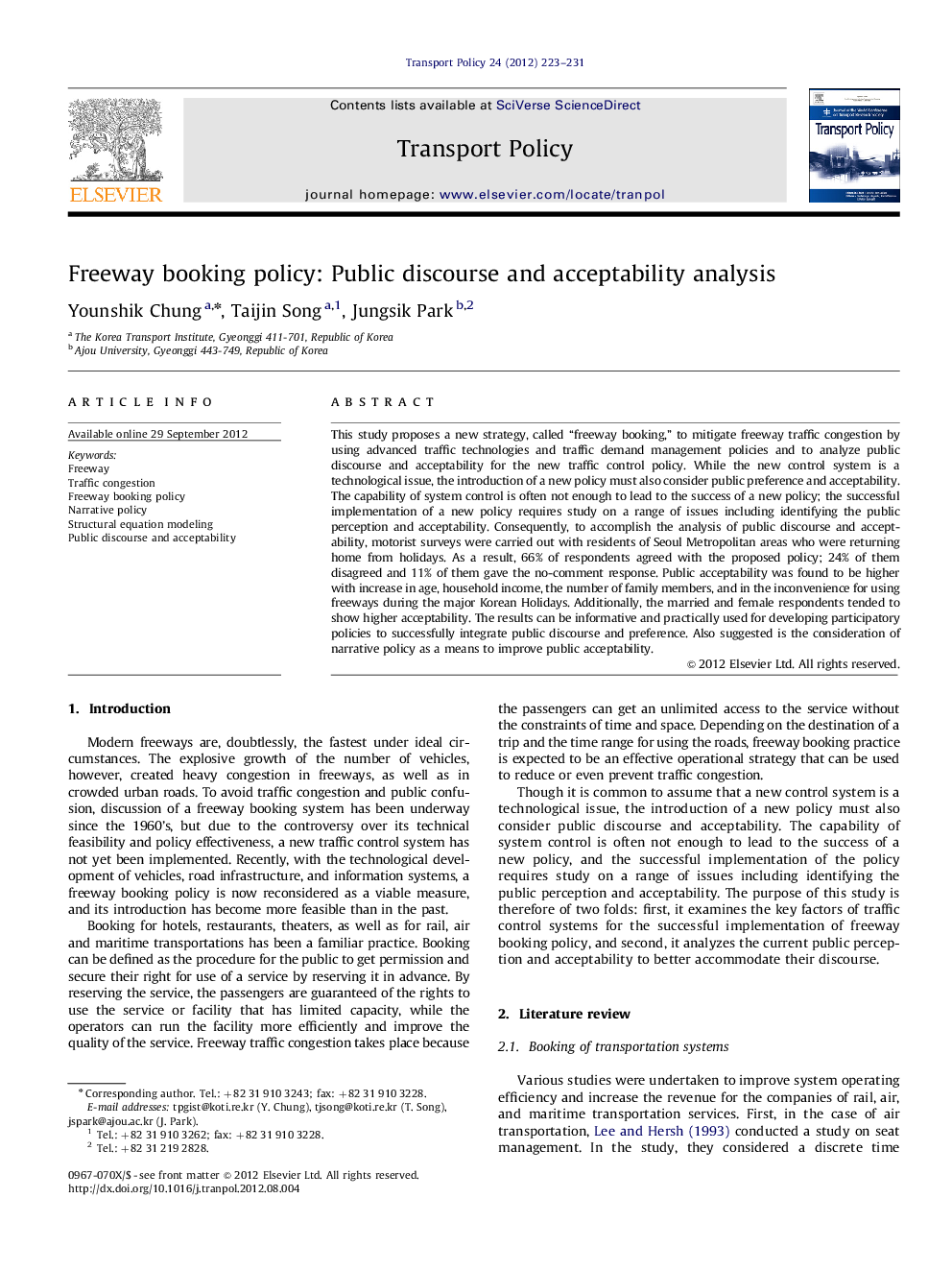| Article ID | Journal | Published Year | Pages | File Type |
|---|---|---|---|---|
| 1065098 | Transport Policy | 2012 | 9 Pages |
This study proposes a new strategy, called “freeway booking,” to mitigate freeway traffic congestion by using advanced traffic technologies and traffic demand management policies and to analyze public discourse and acceptability for the new traffic control policy. While the new control system is a technological issue, the introduction of a new policy must also consider public preference and acceptability. The capability of system control is often not enough to lead to the success of a new policy; the successful implementation of a new policy requires study on a range of issues including identifying the public perception and acceptability. Consequently, to accomplish the analysis of public discourse and acceptability, motorist surveys were carried out with residents of Seoul Metropolitan areas who were returning home from holidays. As a result, 66% of respondents agreed with the proposed policy; 24% of them disagreed and 11% of them gave the no-comment response. Public acceptability was found to be higher with increase in age, household income, the number of family members, and in the inconvenience for using freeways during the major Korean Holidays. Additionally, the married and female respondents tended to show higher acceptability. The results can be informative and practically used for developing participatory policies to successfully integrate public discourse and preference. Also suggested is the consideration of narrative policy as a means to improve public acceptability.
► Freeway booking policy to mitigate freeway traffic congestion is proposed. ► Freeway booking policy is analyzed for its acceptability with a structural equation model. ► A narrative policy is addressed for the successful implementation.
